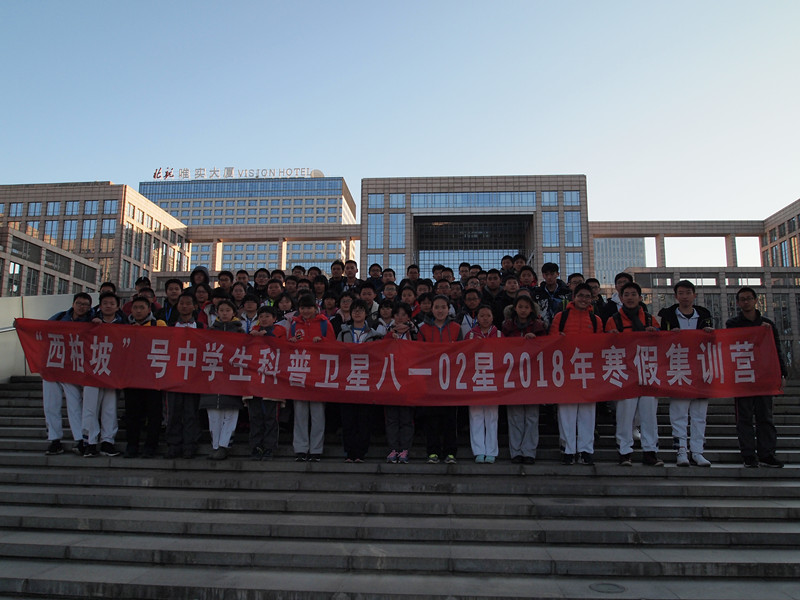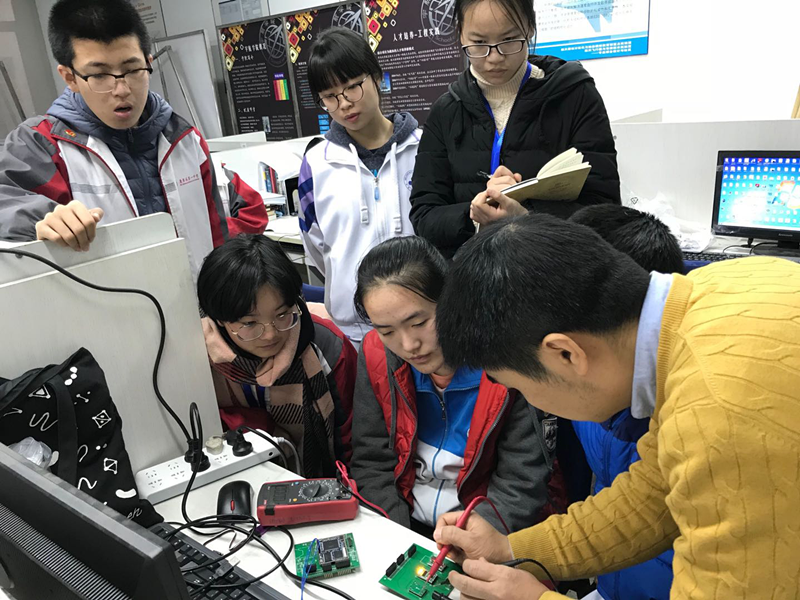The High
School Student Winter Camp for Bayi-02 nanosatellite project was held in
Beihang University successfully during February 5-10, 2018. The camp aimed to
the high school aerospace science education and engineering practice
activities, which was sponsored by China Aerospace Science and Technology
Education Alliance and organized by Beihang University.

More than 80 high school students joined
the camp, who are from Luquan High School, Beijing Bayi School, etc. The
trainees conducted a six-day intensive training and engineering practice at
School of Astronautics, BUAA.

In
the camp, the students were divided into eight groups according to different
technical subjects, which include: Structure & Mechanism, Orbit Design, Attitude
Determination and Control (ADCS), Assembly Integration and Test (AIT), Remote Sensing
(RS), Telemetry Track and Command (TT&C), Electrical Power System(EPS) and On-Board
Data Handling (OBDH).The students had learnt the related knowledge of nanosatellite
platform, grasped the use of various professional software, and carried out the
actual engineering operation of the subsystems under the guide of the faculty
team from the School of Astronautics. Meanwhile, the camp also provides a
variety of experiential learning activities for the students, such as film
"Genius by Stephen Hawking" interpreted by expert, visited the Chinese
astronaut training center and BUAA aeronautics and Astronautics Museum, etc. In
addition, the students also received technical training and qualification exams
for amateur radio operator.


During
the camp days, the high school students learned a lot of space knowledge, realized
the charm of astronautics and improved their comprehensive abilities.
The closing ceremony was held on February
10, 2018 at Beijing Bayi School. The student’s exciting and wonderful presentations
were praised by the experts. Based on the student’s performance and the
completion of their missions, the experts award for an outstanding group and
ten outstanding students.

The
teachers and assistants in the camp are all pursuing for the APSCO-SSS project.
By organizing this winter camp, more training experience have been acquired,
which will be benified for the subsequent training of the APSCO-SSS project.
In
recent years, "STEAM Education", which is derived from the United
States, has received widespread attention. STEAM education is a comprehensive
education that integrates science, technology, engineering, art and
mathematics. It aims to break the boundaries of disciplines, solve practical
problems through the comprehensive application of academic attainments and
cultivating comprehensive talents. The winter camp covers a number of
disciplines and fields such as mathematics, physics, communications,
engineering, etc. It is an important practice of the philosophy of STEAM
education, and ultimately achieved a series of outstanding results.
APSCO's
purpose includes promote the multilateral cooperation among member states in
space science, technology and applications, conduct the mutual aid among member
states, improve the space ability of member states, promote the peaceful uses
of outer space, as well as conduct personnel training, etc. The training of
young space talents is also one of the development directions. The purpose of
this winter camp is to deepen the understanding of high school students in the
field of aerospace and to cultivate basic scientific research qualities. It is
an important part of personnel training to prepare for training of teenage
space talents.
In
the future, Beihang University will work together with APSCO and its member
states to strengthen cooperation in such fields as space science research,
space science and technology education and personnel training, aiming to
promote the peaceful use of outer space technology, contribute to the personnel
training of space jointly, and increase the space abilities and international
influence of the member states of the Asia-Pacific Space Cooperation
Organization.

